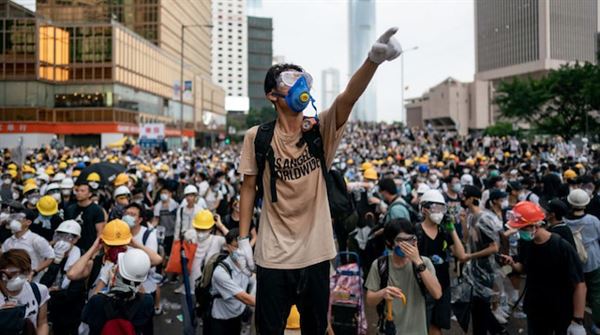Battling months-long protests, pro-democracy lawmakers in Hong Kong have proposed to change definitions of unlawful assembly and a riot. Hong Kong&rsq
Battling months-long protests, pro-democracy lawmakers in Hong Kong have proposed to change definitions of unlawful assembly and a riot.
Hong Kong’s Department of Justice has approved the draft of the amendments which requires written approval from Chief Executive Carrie Lam before it is presented in Legislative Council, Hong Kong Free Press reported Tuesday.
At least 5,800 people were arrested, of whom nearly 500 were charged with rioting, since protests hit the vibrant business city which remains under the control of China since 1998.
The bill further seeks to amend the maximum sentence for unlawful assembly from three years to six months, and reduce the possible sentence for rioting from 10 years to three.
Hong Kong first implemented what it calls Public Order Ordinance in 1967 to control a leftist protest movement that year.
The move comes after Hong Kong’s opposition pro-democracy movement won a majority in 17 out of 18 district councils, all of which were previously under pro-establishment control last week.
Lam on Tuesday said that the region’s human rights and freedom are protected by the Basic Law.
“In fact, I want to ask which aspect of Hong Kong residents’ freedom was eroded? We have press freedom, we have freedom to participate in rallies and marches. We have religious freedom. We have a high degree of freedom in many aspects,” she said ahead of the weekly Executive Council meeting.
Meanwhile, Beijing may impose travel sanctions on U.S. officials and lawmakers to China, daily South China Morning Post reported.
The retaliatory measures are seen as what Beijing calls “interference in Chinese internal affairs over Xinjiang and Hong Kong”.
Hong Kong, an autonomous region under China, is witnessing protests since early June, against the Lam administration’s move to legalize extradition to mainland China.
The government has already dumped the bill, but protests continue with demands to prosecute the police for violence.
